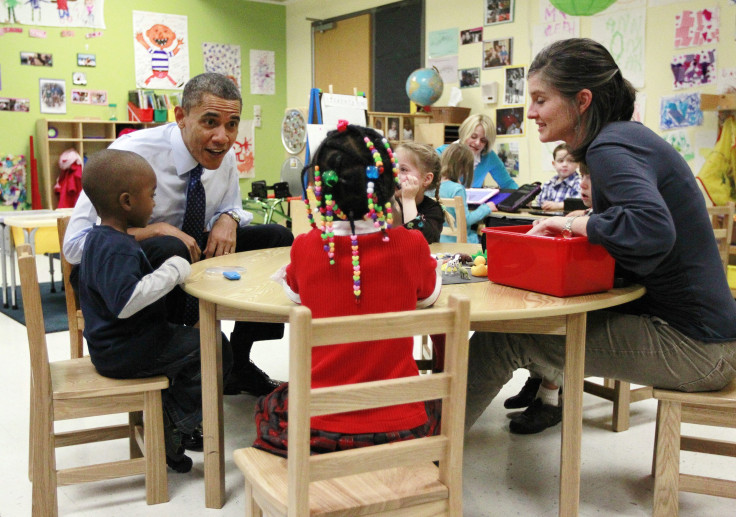Racial Bias In Preschool: Why Are Black Students Suspended More Than White Students?

A new study by Yale University's Child Study Center in New Haven, Connecticut, analyzed why black preschoolers are at the greatest risk for expulsion. Researchers have long acknowledged the disparity but this is the first time the cause has ever been studied. The study concluded that the implicit bias of teachers may be partly to blame.
Implicit bias refers to unconscious stereotypes that cause people to act a certain way or make certain decisions.
At 2pm we're handing our Twitter over to Dr. Walter Gilliam for an #EarlyEdChat about implicit bias in preschool. RT and join us!
— Yale Child Study Center (@YaleCSC) October 6, 2016
The research was done by conducting two tests on a group of educators. In the first test, subjects were asked to expect challenging behavior while watching a video of preschoolers. The teachers' eyes were then tracked to see which children they watched most. In the second test, participants read a short story regarding a preschooler with a stereotypical black or white name and asked to rate the severity of the child's behavior and the likelihood of expulsion.
The results found that teachers watched black children the longest when expecting challenging behavior during the video test. The participants rated white children's behavior as more severe during the story test which the study notes as a result of expecting black children's behavior to be worse and therefore not appraising it as severe.
Participants in the study reported that the offenses by black students were more troubling and were more likely to result in severe punishment or suspension as compared to a white student with the same record.
Although black children make up only 19 percent of preschool enrollment, they make up 47 percent of preschoolers suspended. Black children are 3.6 times more likely to be suspended than white children, according to the study.
These expulsions often lead to young children losing educational placement or time in care and threatening future educational access, the study notes. It also suggests that while all humans have biases, an emphasis should be placed on more empathetic responses instead of immediate expulsion or suspension.
© Copyright IBTimes 2025. All rights reserved.






















